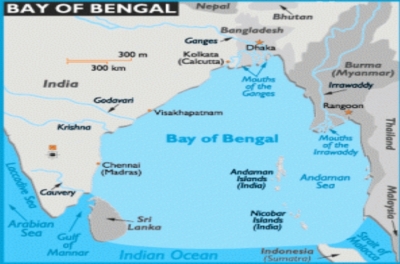

The critical Bay of Bengal region
<p>
The political turmoil in Nepal could retard the progress on the muchc awaited Bangladesh-Bhutan-India Nepal (BBIN) initiative, but it is unlikely to delay the ambitious connectivity project for long. The framework for BBIN &ndash; a sub-regional initiative aimed at improving connectivity in the region and boosting economic cooperation among the four South Asian countries has already been worked out. While originally, the initiative was envisaged to boost road connectivity, it has now taken a much larger shape amid the outbreak of the Covid 19 pandemic.</p>
<p>
&ldquo;Despite political uncertainty, we are confident that the BBIN project will soon see the light of the day. There could be some delay because of the Nepal elections, which will be held in November. So we expect the protocol to be signed and sealed by next year,&rdquo; Bipul Chatterjee, Executive Director CUTS International told India Narrative.</p>
<p>
Though Bhutan has decided to play an observer and not be a full-fledged part of the agreement, it has given a go-ahead. Experts said that the political uncertainty in the Himalayan country could at most delay the implementation of the project but there is no fear of it being dumped.</p>
<p>
&ldquo;Work is moving very fast on BBIN, which is essentially a subset of the BIMSTEC. The Covid 19 pandemic has provided the region a common thread to fast track these initiatives that boost connectivity and economic co-operation. BBIN will play a major part and this will be crucial as the South Asian countries prepare for a post Covid world,&rdquo; Nazneen Ahmed, Senior Research Fellow, Bangladesh Institute of Development Studies (BIDS) said.</p>
<p>
Experts including Chatterjee and Ahmed said that regional connectivity has a huge potential to push economic growth for these countries.</p>
<p>
&ldquo;Bay of Bengal region has not yet unleashed its true growth potential. The growth prospects are huge and once the BBIN is put in place, we will see a different story in this region,&rdquo; Chatterjee said.</p>
<p>
A World Bank report published in March said that seamless transport connectivity between India and Bangladesh has the potential to increase national income by as much as 17 per cent in Bangladesh and 8 per cent in India.</p>
<p>
&ldquo;The eastern sub-region is poised to become an economic growth pole for South Asia. An important component of this development potential is for countries to invest in connectivity &ndash; rail, inland waterways, and roads,&rdquo; Junaid Ahmad, World Bank Country Director in India said in the report</p>
Australia's High Commissioner to India, Philip Green OAM, called Yoga one of India's gifts to…
The Bharat Sanchar Nigam Limited (BSNL) has announced the soft launch of BSNL Quantum 5G…
The Indian Embassy in Iran has said that the embassy will make efforts to evacuate…
India's gross direct tax collections for the financial year 2025-26 rose by 4.86 per cent…
Russian President Vladimir Putin has said that Moscow is not seeking Ukraine's unconditional surrender, but…
Extending his greetings on the 11th International Day of Yoga, Lok Sabha speaker Om Birla…